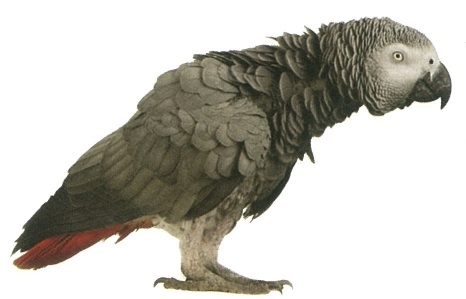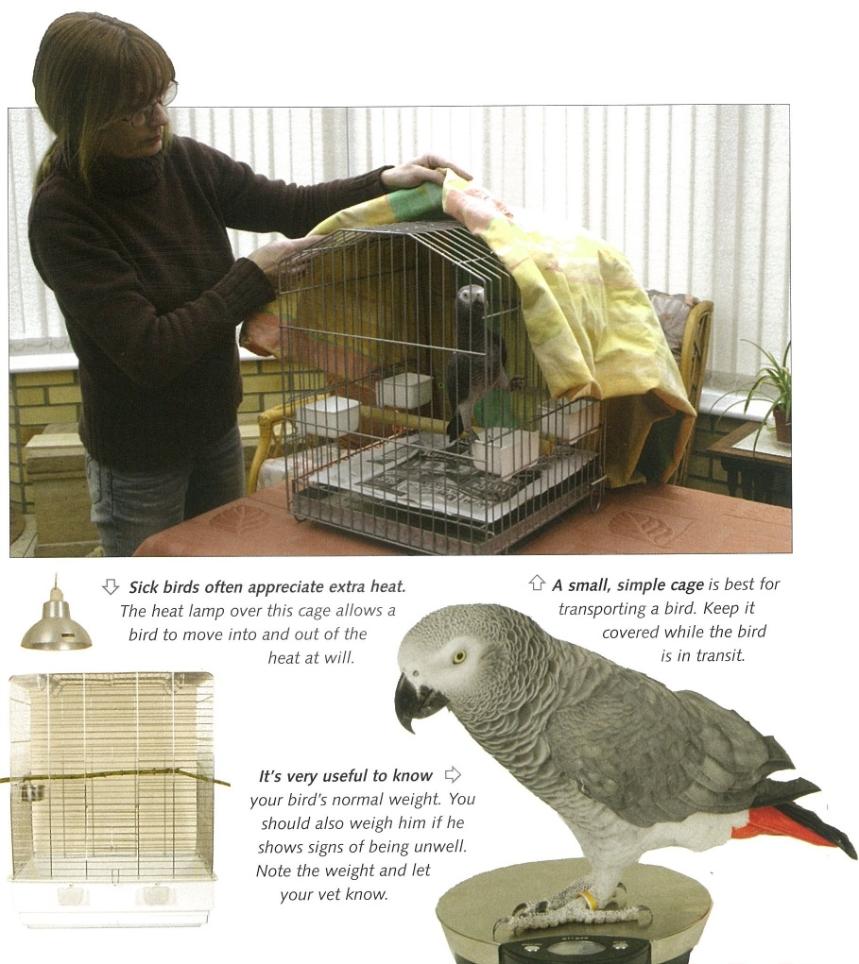Recognising sick birds
Sick birds often appear tired with fluffed up feathers and sunken, dull or half-closed eyes. They may have difficulty balancing or using a perch and may go to the floor of the cage instead. Sick birds often shows signs of being less aware of things going on around them. The droppings may not be normal and the bird may not be eating as usual. Sick birds often lose weight and this can be rapid. Make sure you know your bird's normal weight and check this from time to time.Sick birds: what to do
If the bird can be weighed without causing further stress, then do so and write the reading down. Sick birds usually gain great benefit from simply being put somewhere very warm, 26 to 30°C (79 to 86°F) and kept out of bright lights. You can supply heat using a ceramic infra-red heat lamp placed above the cage (this emits heat without any light). Place this so the bird can move away from the lamp if at any time it feels too hot. Use a thermometer to check the temperature around the cage (but keep this out of reach of the bird). The provision of heat will mean the bird will need to drink regularly, so make sure the bird has easy access to drinking water and 'wet' foods such as grapes or apples. Once the bird is receiving heat treatment, phone your vet, explain the bird's symptoms and get emergency advice without delay. When taking your bird to the vet, keep it very warm all the time. Stress alone can make things worse for the bird, so always act calmly. Restrict the bird's ability to see out of its carrier cage during travelling as this also helps to reduce stress.Items for your bird's First Aid needs:
• Avian vet's contact details
• Cotton wool and cotton wool buds - used to help stop bleeding
• Styptic pencil (to stop bleeding of claws or damaged beak only)
• Antibiotic ointment
• Avian antiseptic
• Electrolyte solution, e.g. Prolyte-C from Aviform, UK
• Avian multivitamin powder
• Glucose powder
• Towel - should be bland colour such as white or cream (Dark towels may frighten the bird)
• Ceramic infra-red heat lamp, or hospital cage
• Room thermometer
• Small syringes and a bent spoon for giving medicine or food
• Forceps
• Pair of small sharp scissors
• Hand feeding formula
• Travelling cage with one low-level securely fitted perch
• Good quality electric scales

